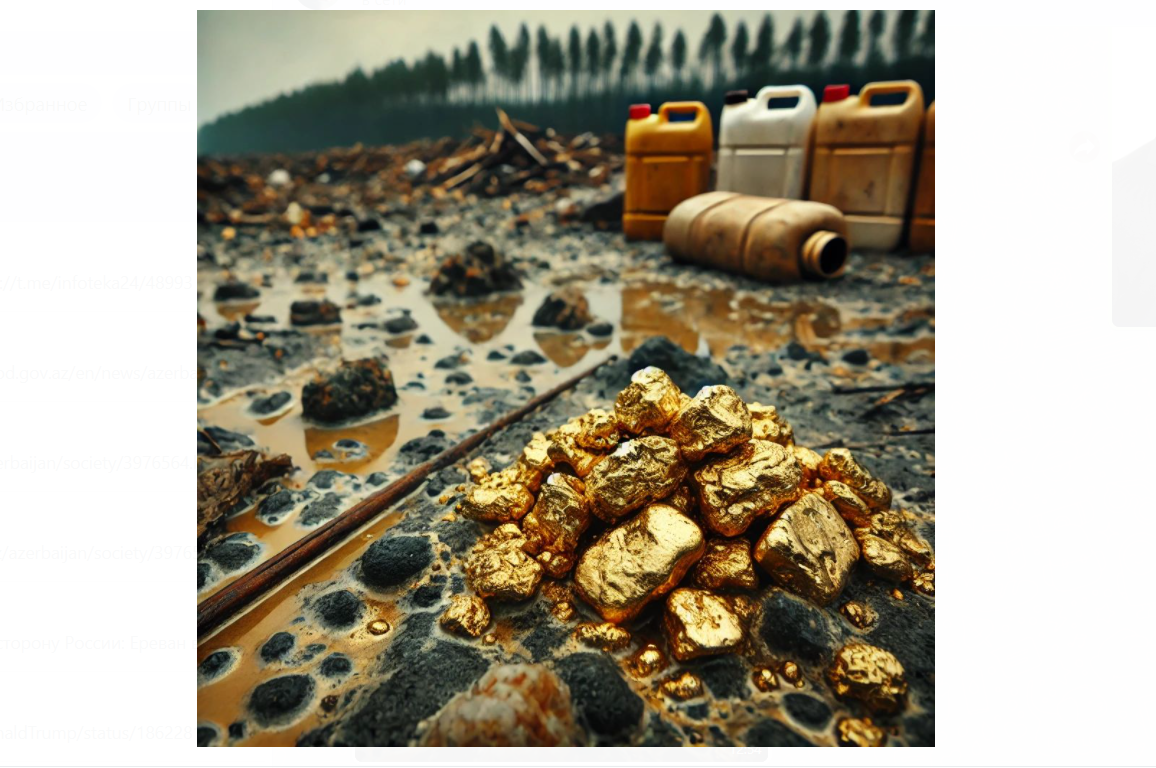BAKU, Azerbaijan, November 29. Armenia has turned away the lifeline offered by the Eurasian Development Bank (EDB) for the nurturing of the Amulsar gold deposit, which has consistently been highlighted for its adverse environmental impacts, Trend reports.
“Lydian Armenia Company has withdrawn its application. All internal procedures for assessing the application by the bank have been halted,” an EDB representative said, commenting on the issue.
Earlier, the memorandum of intent, signed in February 2023 between Armenia’s Ministry of Economy, Lydian Armenia, and the EDB, envisaged attracting a financial package of $250 million. The expectation was that the EDB would provide $100 million, another $50 million would come from a local bank, and the remaining sum would be provided by Lydian Armenia itself.
Armenia appears to be casting its net into new waters, searching for fresh streams of support from the West, a move that may signal a gradual drift away from the embrace of Russia. Yerevan aims to attract Western capital for this environmentally hazardous project, despite global concerns about the climate crisis. The refusal to cooperate with the EDB, founded by Russia and Kazakhstan, aligns with Armenia’s strategy of gradually shifting away from Russia and pivoting toward the West. Against the backdrop of increasing Western influence in the country, Yerevan openly shows its willingness to ignore environmental risks and continue the project with Western investors.
Environmental threats of the Amulsar project
The Amuldag deposit is located 13 kilometers from the town of Jermuk, which is known for its natural mineral springs. The exploitation of the mine poses a devastating threat to the mineral springs in Jermuk. The Arpachay and Bazarchay rivers sit between the deposit. Both rivers flow through Azerbaijan and feed into the Araz river. The use of toxic substances, long banned for their environmental hazards, in the operation of the Amuldag deposit causes acidification and poisoning of river waters, thus destroying nature.
In addition to polluting the waters of these rivers, gold mining also negatively impacts the ecosystem of Lake Sevan (Goycha), Armenia’s largest freshwater lake, located near the area. Furthermore, this industry represents a serious threat to the Caspian Sea basin. Arpachay, which flows through Azerbaijan’s Nakhchivan Autonomous Republic, and Bazarchay, flow into the Araz river, which ultimately drains into the Caspian Sea. As a result, the project causes significant ecological damage not only to Azerbaijan but also to Iran and other Caspian coastal countries.
It is no coincidence that some time ago, over 60 active civil society organizations in Armenia appealed to Prime Minister Nikol Pashinyan, warning that the exploitation of the Amuldag (Amulsar) mine would cause severe environmental harm. They urged the Armenian authorities to cancel the decision to resume operations at the mine and called for a review of the environmental impact assessment.
Thus, in its search for new funding sources for the environmentally destructive Amulsar project, Armenia continues to openly distance itself from its traditional partners, including Russia, and increasingly seeks support from Western investors. Paradoxically, the country, which will host the 17th Conference of the Parties to the UN Convention on Biological Diversity (COP17) in 2026, demonstrates a complete disregard for environmental conservation and sustainable development.
By putting all their eggs in one basket with the Western capital, Armenia’s authorities are looking to move ahead with a project that could spell trouble not just for Armenia’s ecosystem but for the whole region as well. In the quest for a quick buck, Yerevan appears ready to throw caution to the wind, putting natural resources and the welfare of its neighbors on the chopping block. This behavior raises shadows over Armenia’s true dedication to its environmental vows, transforming the nation into a wellspring of ecological turbulence in the South Caucasus.


